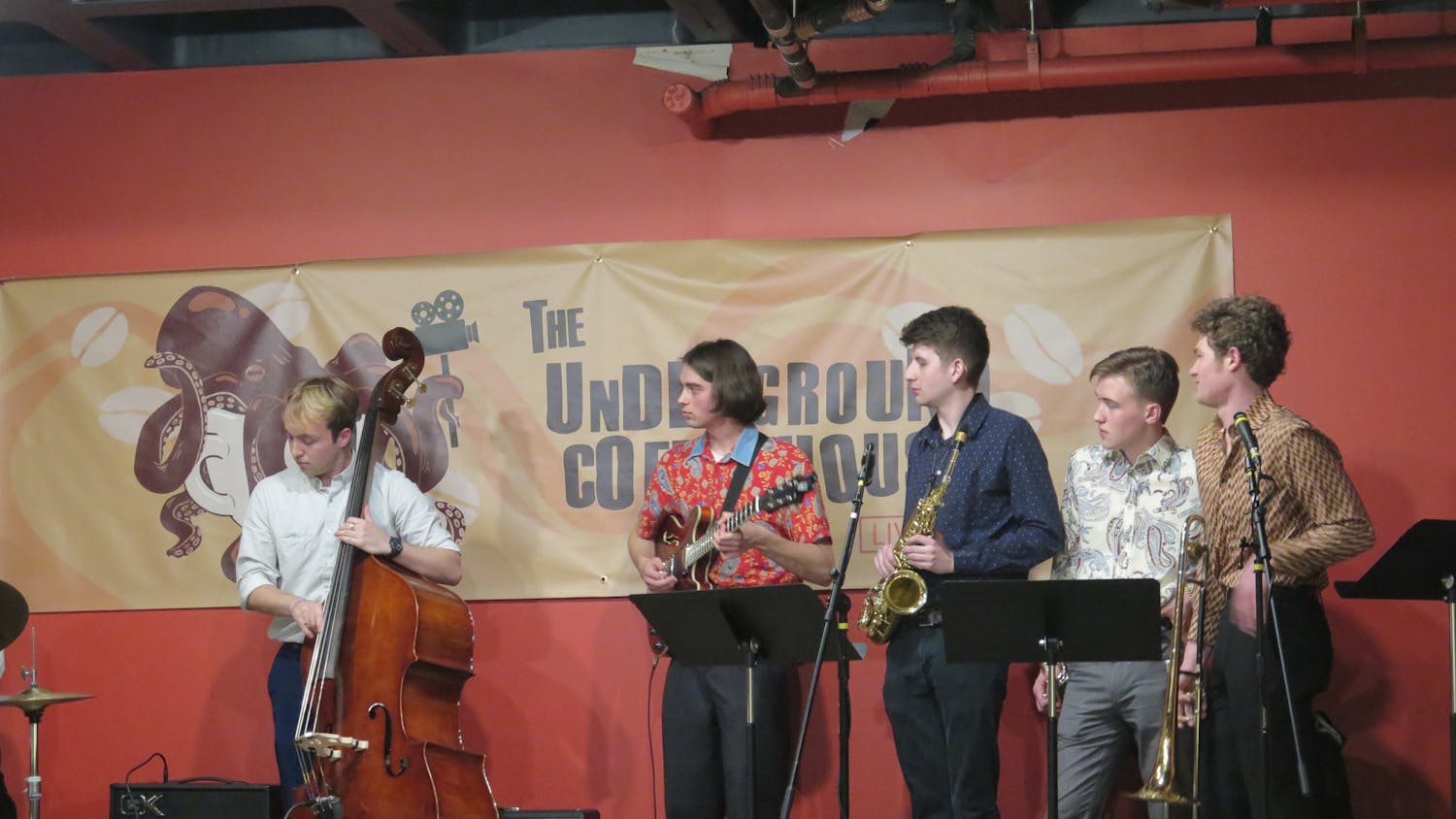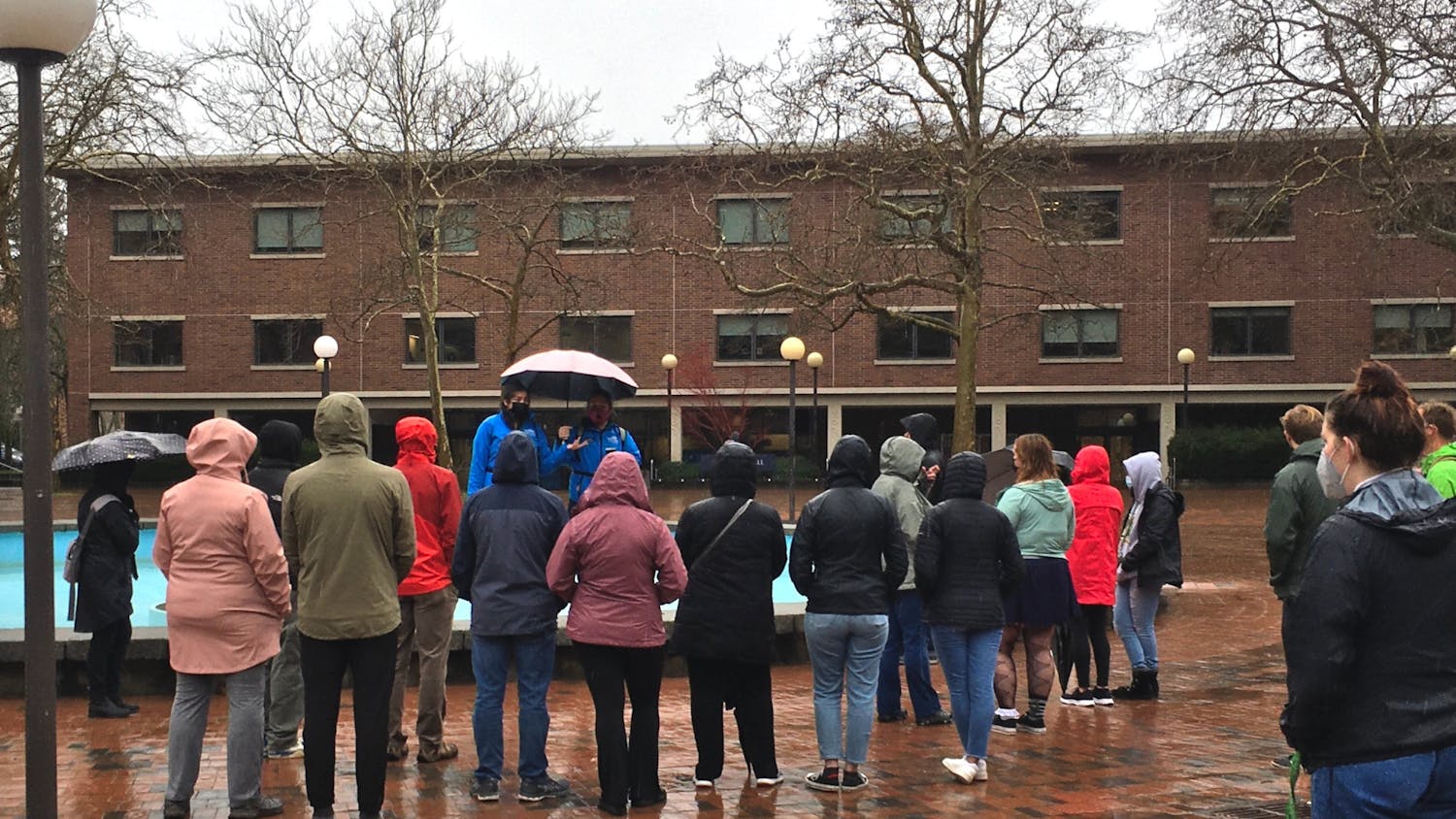
Want to find out what the guzheng sounds like in audible detail and find out more about the instrument? Go here.
After playing music professionally for more than 20 years, Haiqiong Deng has shifted her approach — not just playing well but sharing her personal experience.
“They talk about multiculturalism, but how, you know?” she said. “I think what I'm doing is one actual practice to implementation, that is to use music to bring more understanding.”
This is how Deng, a world-renowned guzheng player, describes the importance and impact of playing her traditional Chinese music across the U.S.
According to Deng’s website, the guzheng is a plucked half-tube, wooden, 21-stringed instrument with movable bridges, typically tuned to the pentatonic scale. It is the parent instrument of the Asian long zither family.
She will be sharing her music at Western’s Performing Arts Center Concert Hall for the first time on Thursday, Feb. 6 as part of Western’s Global Spice Concert Series, sponsored by Adventures Northwest magazine.
“Haiqiong is a world master on the zheng,” John D’Onofrio, publisher at Adventures Northwest Magazine, said in an email. “A lot of folks aren’t familiar with this amazing music but thanks to Global Spice, they have a chance to discover it for themselves — without having to leave Bellingham.”
Deng has an impressive resume, having been nominated for an Independent Music Award in 2014, and playing a show at Carnegie Hall in 2003.
“[She] is in high demand because she is one of just a very few people who’s so proficient and so incredible to watch,” Western music professor, Felicia Youngblood said.
Deng and Youngblood were colleagues at Florida State University where they studied ethnomusicology. Deng said that Youngblood is one of the main reasons she is coming to perform at Western.
“Haiqiong is a person it's hard not to be impacted by,” Youngblood said. “She doesn't have one of those huge personalities when she walks into the room, she doesn't take up all the space, but the moment that you speak with her she is very interested.”
Youngblood shared the stage with Deng during their time together at FSU. The two worked together on a rock ensemble performance that combined rock music with traditional Chinese instruments.
“In the rehearsal space, I was really impressed with her ability to navigate these two seemingly separate genres,” Youngblood said. “She's the type of person that she just dives in if you want to try something new. She thinks about it for a second and says, ‘OK,’ and she somehow just pulls it out.
Despite a discography of genre blending — including with an Indian sitar player, and Spanish musician — Deng’s main genre is traditional Chinese music.
Western professor of Chinese Literature, Julian Wu, said the zheng is an extremely rich cultural icon in China and other East Asian countries, including Japan and areas of Korean and Mongolia.
“In ancient China, books, a zither (stringed musical instrument) and a sword were the must [have]carry-on items in a scholar traveler’s baggage,” Wu said in an email. “They together demonstrated a kind of balance between the civil and the martial aspects to be trained in the progress of self-cultivation, so that the character of the ideal gentleman-scholar, or junzi 君子, in Chinese, could be developed.”
Wu said that the zheng is often referenced in both Chinese film and literature — including in Stephen Chow’s 2004 blockbuster film “Kung Fu Hustle.”
“As traditional Chinese literature is concerned, most of the influential romance stories in various genres — namely the Han rhapsody, Tang poems, song lyrics, Yuan drama and Ming and Qing novels — inevitably involved the episodes of a male zheng or zither player and a female listener, or vice versa,” Wu said. “Any contemporary Chinese cultural element, as long as it touches upon the zheng topic, words, pictures, music, etc., will be indicative of the charm of antiquity, history and civilization.”
Deng’s concert at Western will be a solo performance featuring seven traditional Chinese pieces from various regions of China. The songs will showcase aspects of Chinese culture and music, she said.
“I hope my concert, [and] the pieces I chose, can provide the audience some basic understanding of traditional Chinese language,” Deng said. “[It] is quite different from Western classical music, or popular music, but it’s not that distinct or different.”
One of the concepts Deng is hoping to tackle with her music is the idea of nature as it relates to the zheng.
“A lot of traditional Chinese music was about contemplation, meditation and the connection with a human being in nature,” Deng said. “Not as directly describing a tree or flower, but rather this sentiment based in nature to reflect on your inner contemplation.”
Although Youngblood has gotten to see several performances of Deng’s, she said one of her favorite memories is seeing her play her zheng near a land bridge surrounded by water and cypress trees outside her Tallahassee home.
“It’s a beautiful thing to see, but beyond any kind of beauty associated with it, it really shows that natural connection of zheng playing with the surrounding environment,” Youngblood said. “That’s the best kind of performance, and it’s not even usually a performance for other people. It’s just her creating music.”
Of the pieces that Deng is planning on playing at the concert, she said a piece called “Lotus” is her favorite. “Lotus” is difficult because of its simplicity, which puts more emphasis on the small number of individual notes, Deng said.
“People focus on music as being a sound-based medium,” Youngblood said. “When you listen to traditional zheng music, it’s just as important to have balance with space.”
Deng said the balance between the piece’s notes are symbolic of a metaphysical balance found in ancient Chinese philosophy and human nature.
In contrast, to the simplicity of “Lotus”, Deng said she will play a longer, more technical piece that she adapted from a pipa — a four-stringed Chinese instrument.
“That piece is more like a musical painting,” Deng said. “There are distinct sections and each section has a poetic type. Like in Chinese calligraphy, we have different lines making characters. This linear aspect is essential in traditional Chinese music. There are long melodies, emphasis on the intricate articulations and the changes, then the space happens in between the lines. They never go through a chordal progression.”
To finish her performance, Deng said she is planning on doing an interactive lesson with the audience on the value of listening to Chinese music.
“If we listen to symphony, we listen to format or listen to the core harmony,” Deng said. “It's not really that. In the moment, we all take a deep breath and it just comes into our own body and our own inner inner-self and that, through music, we probably have some reflections.”
Deng said during her early music education a lot of emphasis was put on playing well on stage, however this is something she said has changed.
“It is really no longer a priority for me anymore,” Deng said. “I like to share cultural context. I want the audience to understand what’s going on and share my personal insights with them.”
Rather than just a concert, Deng said her goal is to make her performance an educational and cultural experience, one that can foster understanding.
“I want to introduce more Chinese tradition that the audience experiences,” Deng said. “Then one day [they will] speculate, and either they will listen more because they had some firsthand experience or they’ll start understanding. I think it can open up all kinds of great things. I hope music can contribute some goodness to humanity.”
Want to find out what the guzheng sounds like in audible detail and find out more about the instrument. Go here.





